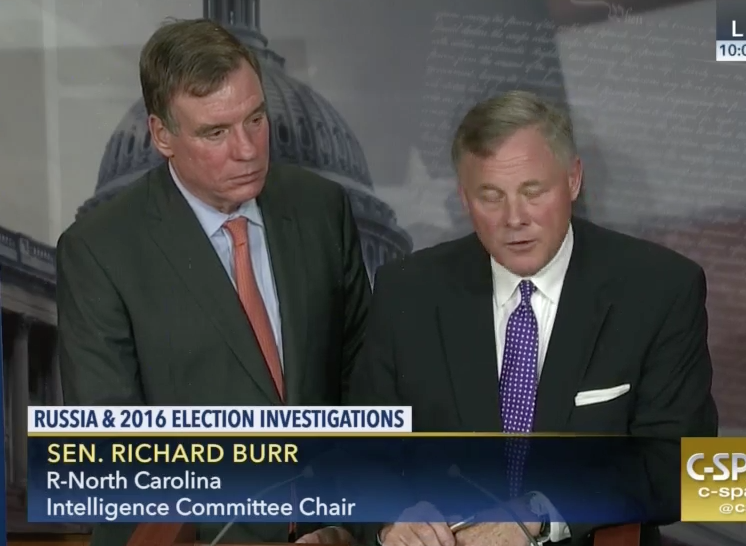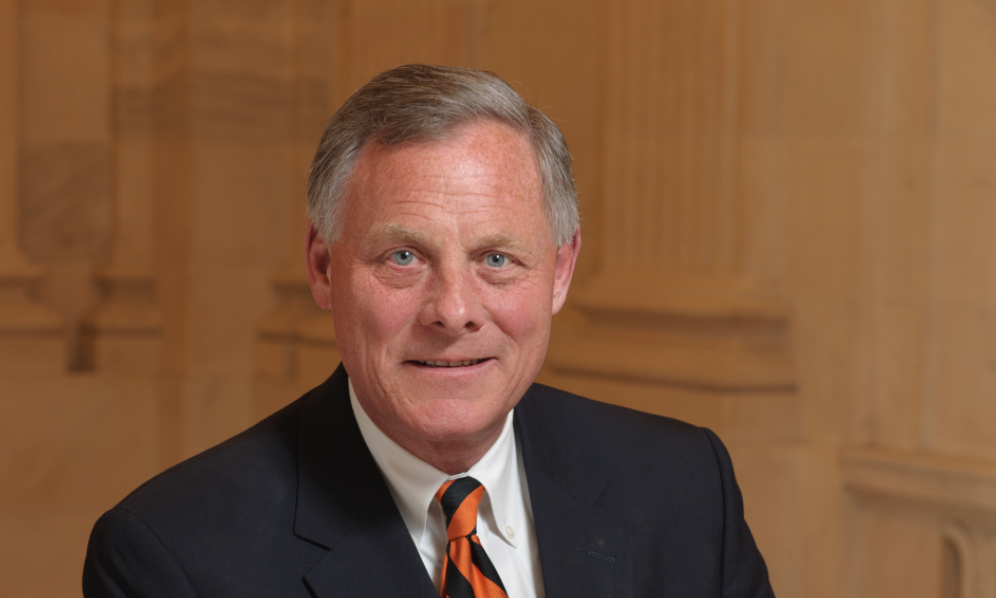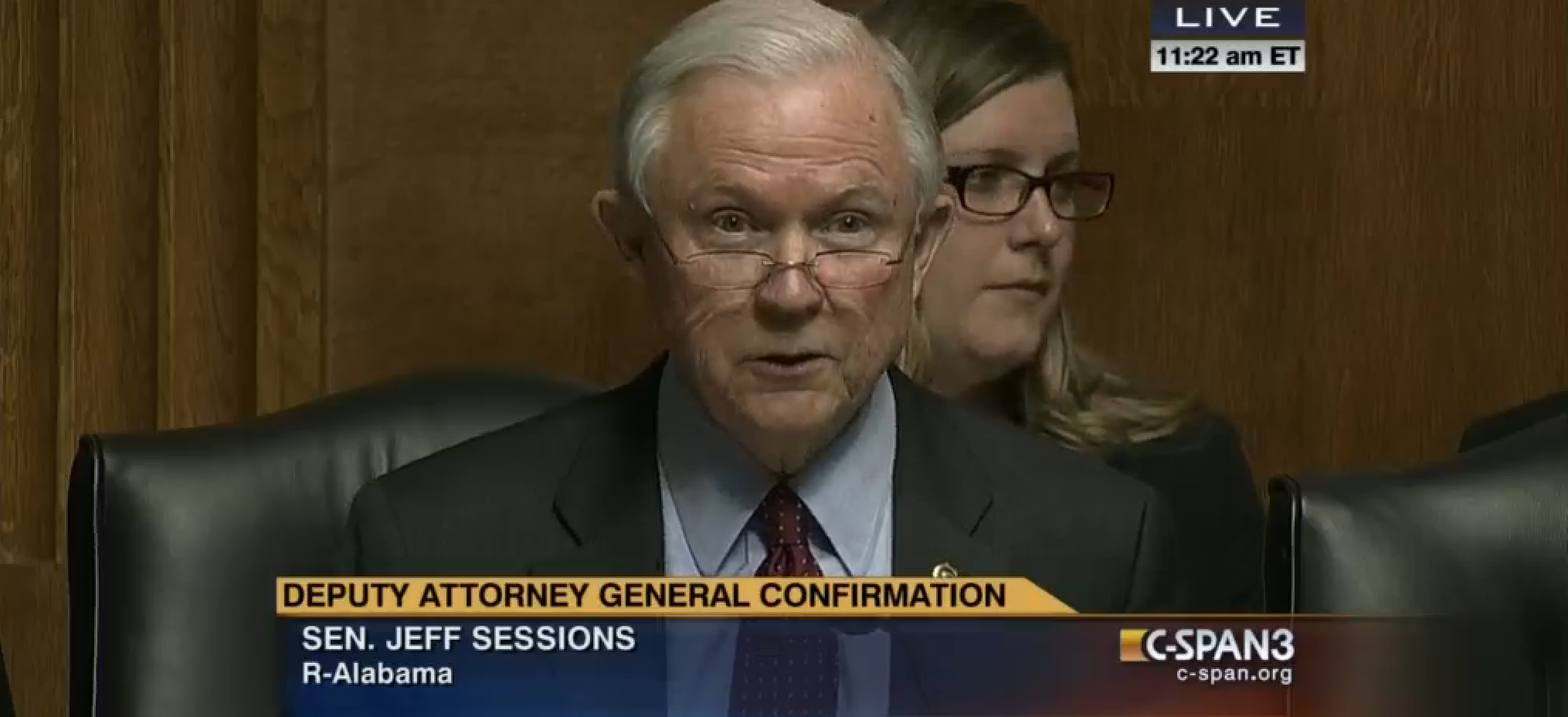The NYT has a big piece on Jim Comey’s involvement in the election you should definitely read. Rather than share my thoughts in a tweet storm I thought I’d share here so we can all gab about it.
Consensus coming closer to Jim Comey being self-righteous
As long time readers know, I think Jim Comey is self-righteous. He creates a heroic self-image that is often overblown (as it was regarding the post hospital hero events). So I was happy to see this paragraph — and observations matching it — through out the story.
Mr. Comey made those decisions with the supreme self-confidence of a former prosecutor who, in a distinguished career, has cultivated a reputation for what supporters see as fierce independence, and detractors view as media-savvy arrogance.
Comey deserves all the criticism he has gotten for his statements about the Hillary investigation. But we’re stuck with Comey for now; he’s one of the few checks against Trump’s arbitrary rule (and Comey is enough of a media hound to be able to create the space to conduct the investigation into Trump).
But one way or another I’m happy people are beginning to understand Comey not as the hospital hero, nor as a partisan, but as someone who doesn’t (or didn’t?) assess his own actions with a fair measure.
The secret David Margolis meeting
One of two really interesting new details in this story is that, when Comey was trying to decide what to do, he consulted with David Margolis, who has long been treated as the conscience of DOJ by DOJers. (See this bmaz post for more background on Margolis.)
Mr. Comey sought advice from someone he has trusted for many years. He dispatched his deputy to meet with David Margolis, who had served at the Justice Department since the Johnson administration and who, at 76, was dubbed the Yoda of the department.
What exactly was said is not known. Mr. Margolis died of heart problems a few months later. But some time after that meeting, Mr. Comey began talking to his advisers about announcing the end of the Clinton investigation himself, according to a former official.
This meeting (and the description of how they staged Margolis’ funeral so the DOJ people criticizing Comey wouldn’t have to share a stage with him) plays a weird role in the story, as if just the mention of the meeting serves to exonerate Comey’s terrible decision to announce the end of the Hillary investigation.
But what the story doesn’t note is that Comey was effectively consulting with the person who for years always intervened to make sure DOJ’s lawyers don’t get held accountable for their misconduct (most notably, he did this for John Yoo). Now, I’m not sure whether as FBI Director Comey’s behavior might have been reviewed by the Office of Professional Responsibility; as it happens DOJ IG is doing so. But it is not ethical to have the guy who, later on, would bless your actions, bless them before the fact. It’s like getting pre-approval to break the rules.
Loretta Lynch should have recused
One of the details others find most interesting is that the FBI acted as they did, in part, because a Democratic operative suggested in an email that Loretta Lynch would ensure nothing came of the investigation.
During Russia’s hacking campaign against the United States, intelligence agencies could peer, at times, into Russian networks and see what had been taken. Early last year, F.B.I. agents received a batch of hacked documents, and one caught their attention.
The document, which has been described as both a memo and an email, was written by a Democratic operative who expressed confidence that Ms. Lynch would keep the Clinton investigation from going too far, according to several former officials familiar with the document.
Read one way, it was standard Washington political chatter. Read another way, it suggested that a political operative might have insight into Ms. Lynch’s thinking.
Normally, when the F.B.I. recommends closing a case, the Justice Department agrees and nobody says anything. The consensus in both places was that the typical procedure would not suffice in this instance, but who would be the spokesman?
The document complicated that calculation, according to officials. If Ms. Lynch announced that the case was closed, and Russia leaked the document, Mr. Comey believed it would raise doubts about the independence of the investigation.
I’ve got a slew of hacking related questions about this document — starting with why it hasn’t, as far as I know, been leaked. The described timing as “early last year” suggests that it may have been hacked in the FSB phase of the hacking. But the document would have solidified the narrative the Russians were reportedly fostering about Hillary.
The article doesn’t pursue those questions, but it notes that in response to finding it, Comey did not ask Lynch to recuse. He should have. You recuse whether or not there’s basis for recusal but because of appearances as well. Moreover, so much awfulness could have been avoided had she recused. This was one of the big own goals of this whole mess.
CIA Directors should not meet with just one Gang of Eight member
The second detail I find most interesting in this story is that John Brennan privately briefed Harry Reid about his concerns about the Russians.
John O. Brennan, the C.I.A. director, was so concerned about the Russian threat that he gave an unusual private briefing in the late summer to Harry Reid, then the Senate Democratic leader.
Top congressional officials had already received briefings on Russia’s meddling, but the one for Mr. Reid appears to have gone further. In a public letter to Mr. Comey several weeks later, Mr. Reid said that “it has become clear that you possess explosive information about close ties and coordination between Donald Trump, his top advisors, and the Russian government — a foreign interest openly hostile to the United States.”
While I’m generally sympathetic to Democrats’ complaints that DOJ should have either remained silent about both investigations or revealed both of them, it was stupid for Brennan to give this private briefing (and I hope he gets grilled about it by HPSCI when he testifies in a few weeks). In addition to the things Reid said publicly about the investigation, it’s fairly clear he and his staffers were also behind some of the key leaks here (and, as CNN reported yesterday, leaks about the investigation actually led targets of it to alter their behavior). For reasons beyond what appears in this story, I think it likely Reid served as a cut-out for Brennan.
And that’s simply not appropriate. There may well have been reasons to avoid briefing Richard Burr (who was advising Trump). But spooks should not be sharing information with just one party. CIA did so during its torture cover-up in ways that are particularly troubling and I find this — while not as bad — equally problematic.
Two missing details: the leaks and the delayed notice to Congress
While this is already a comprehensive story (though its telling of October 7 omits key details), there are two parts that seem critical that are missing: the flood of leaks from FBI and the decision to delay notifying the Gang of Four of the CI investigation.
This week, CNN reported that the FBI was “clarifying” an earlier policy fostering more contact between FBI employees with the media in response to leaks about the Trump campaign. (Click through to read about the TV series coming out focusing on FBI heroism that the FBI exercised editorial control over!!!)
The new media policy was rolled out this week at a conference in Washington attended by FBI special agents in charge of its 56 field offices, according to officials who attended.
Media access to top officials at the FBI became more common in recent years under FBI Director James Comey, part of a transparency effort he said was aiming at demystifying the FBI and helping the public understand its mission. But the new policy appears to curtail that access.
An official familiar with the development of the new policy described it as largely a “clarification” intended to reinforce existing rules on who is authorized to talk to reporters, not a step back from Comey’s transparency initiatives.
Not only should this policy have been put in place before people leaked details of FISA orders, but it should have been put in place in early 2016, when it was clear FBI Agents were leaking details of the Hillary investigation to try to force their supervisors to expand its scope to include the Clinton Foundation.
Instead, the possibility that FBI Agents would leak was one of the reasons why Comey did what he did. The correct thing, instead of making unprecedented public statements as he did, would have been to shut down the leaking.
Additionally, according to Comey’s testimony, FBI actually delayed notifying at least the heads of the Intelligence Committees until fairly recently. The NYT acknowledges that this detail was hidden. But I’d love to understand how this departure from normal briefing affected all the other decisions (particularly in light of the the Brennan meeting).
In any case, read the whole thing. It’s very frustrating. But it also lays out a series of things that Comey — and other Obama officials — should have done differently.









